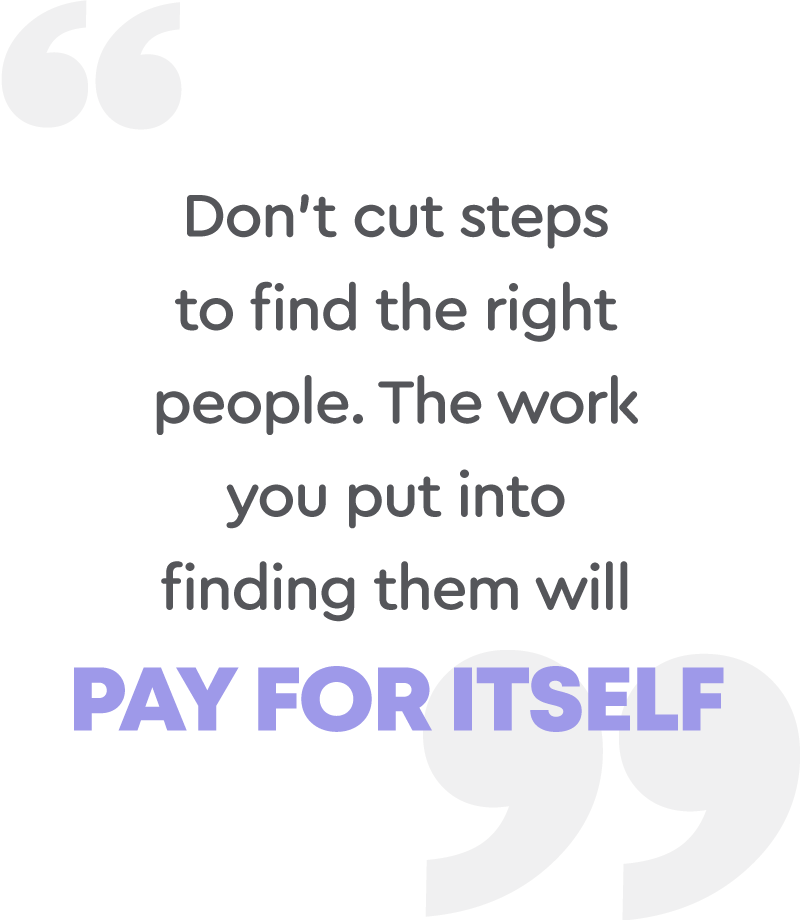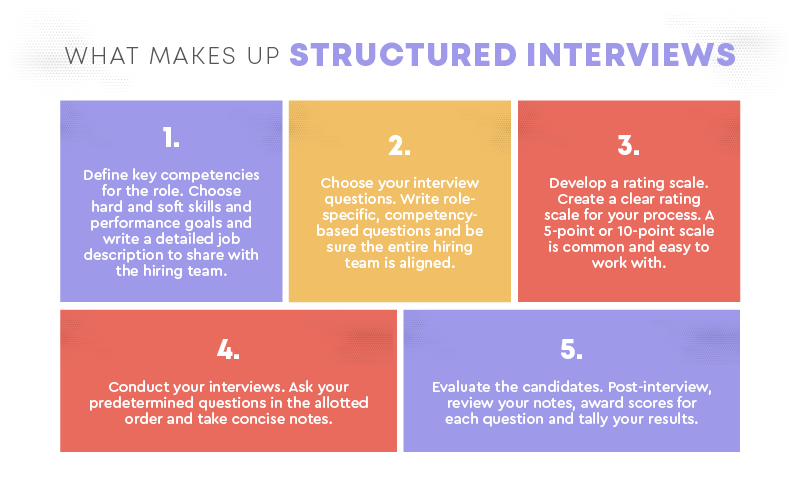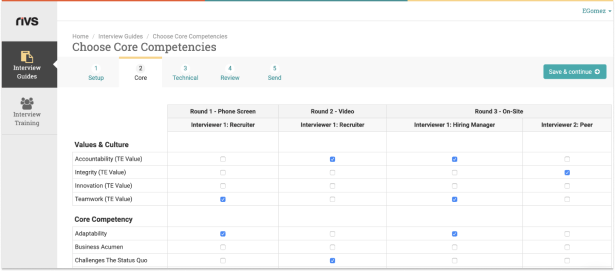It’s the Right Stuff: A Structured Interview Process

“If you could choose one song that describes your work life, what would it be?” This question used to be my favorite interview question to ask. 9 to 5? Yes! Love me some Dolly. Takin’ Care of Business? Really? But I stress used to because can you say bias much? As fun as these questions can be, they don’t tell us anything about the candidate’s actual fit for the role.
This is where a structured interview process steps in. The process is made up of a set of predetermined questions given to all candidates in which the answers are rated by the hiring team using a standardized scoring system. This process allows you to select candidates based on the business objectives and competencies needed for success in the role and gives you the evidence to make data driven hires. A much stronger approach to hiring than your shared taste in 80’s jams!
Structured interviews vs. Unstructured Interviews
Conducting an unstructured interview filled with questions like “What was your favorite subject in college?” can seem a bit more personal. However, these types of questions do not lead you to the information you need to make a strong hiring decision.
For example, popular unstructured interview questions include:
- Tell me about yourself
- Describe your ideal job
- What accomplishment are you most proud of and why?
While these unstructured interview questions create rapport between candidate and interviewer, they do very little in giving you insight into the candidate’s ability to perform what is required of the role.
Unstructured interview questions, and answers, are also inconsistent from candidate to candidate, leaving you without the information you need to make an informed hiring decision. In fact, they predict only 14% of actual employee performance. So shout, shout, these are things we can definitely live without!
Whereas structured interviews, composed of questions like “Can you tell me about the most innovative marketing initiative that you have led recently?” allow you to collect the information that showcases whether a candidate can actually succeed at the job.
For example, some popular structured interview questions include:
- Tell me about a time when you took the lead in a team project. What was the project outcome?
- Tell me about a time when you had multiple important projects to finish and how you prioritize them
- Give me an example of a time you had to [important job skill or function]
- Talk about how you would handle [common job challenge]
The data you gather in a structured interview is more objective and easier to analyze since every candidate is asked the same questions. This type of interview also creates less bias, which 42% of recruiters find to be a huge problem, are shown to be four times as efficient, and lend to a better candidate experience (because who wants to chance being one of the companies that 72% of candidates will bash online after a poor experience?).
And let’s not forget the increased legal protection. A recent study found that 50% of unstructured interviews were found to be discriminatory, compared to only 13% of structured interviews.
What makes up structured interviews?
So how do you start rising up to the challenge of providing a fair and scalable hiring process through structured interviews? These 5 steps can help you plan and implement structured interviews in your hiring process.
- Define key competencies for the role. Choose hard and soft skills and performance goals and write a detailed job description to share with the hiring team.
- Choose your interview questions. Write role-specific, competency-based questions and be sure the entire hiring team is aligned.
- Develop a rating scale. Create a clear rating scale for your process. A 5-point or 10-point scale is common and easy to work with.
- Conduct your interviews. Ask your predetermined questions in the allotted order and take concise notes.
- Evaluate the candidates. Post-interview, review your notes, award scores for each question and tally your results.
The steps above will get you on your way as you plan and execute a structured interview process for your company. You are now ready to make effective, data-driven hiring decisions, all while improving the candidate experience and eliminating bias from the interview process.

Get started with structured interviewing
interviewstream is here to help you get started with a tool designed for creating and implementing a structured interview process – meet, interview builder.
interview builder is a tool designed to structure your interview process with interview guides and scoring rubrics that keep your hiring teams aligned throughout the hiring process. With interview builder you can easily:
- Create a consistent hiring process using interview guides for every role
- Design your own interview guides using tailored questions
- Select and customize your candidate scoring rubric
- Share guides and rubrics with every member of your hiring team
- Customize your interview process for every stage and interview format

Creating and implementing your structured hiring process will take some time but interviewstream can make the process easy! Don’t cut steps to find the right people. The work you put into finding them will pay for itself. The better people you have, the better team and business you will have. You won’t build a city (or rockstar team) on rock n’ roll, but you can build one with a little structure!
Check out interviewstream’s ebook for a deeper dive and an easy-to-use blueprint for implementing a structured hiring process at your organization, or chat with an expert today to see how you can get started with interview builder.
About The Author
Meghan Peterson is the VP of Revenue at interviewstream. She combines her experience in sales, recruiting, and tech to support customers of all sizes in her role. If you’d like to pick her brain about her advice here or simply start a conversation, feel free to give Meg a shout at mpeterson@interviewstream.com.
